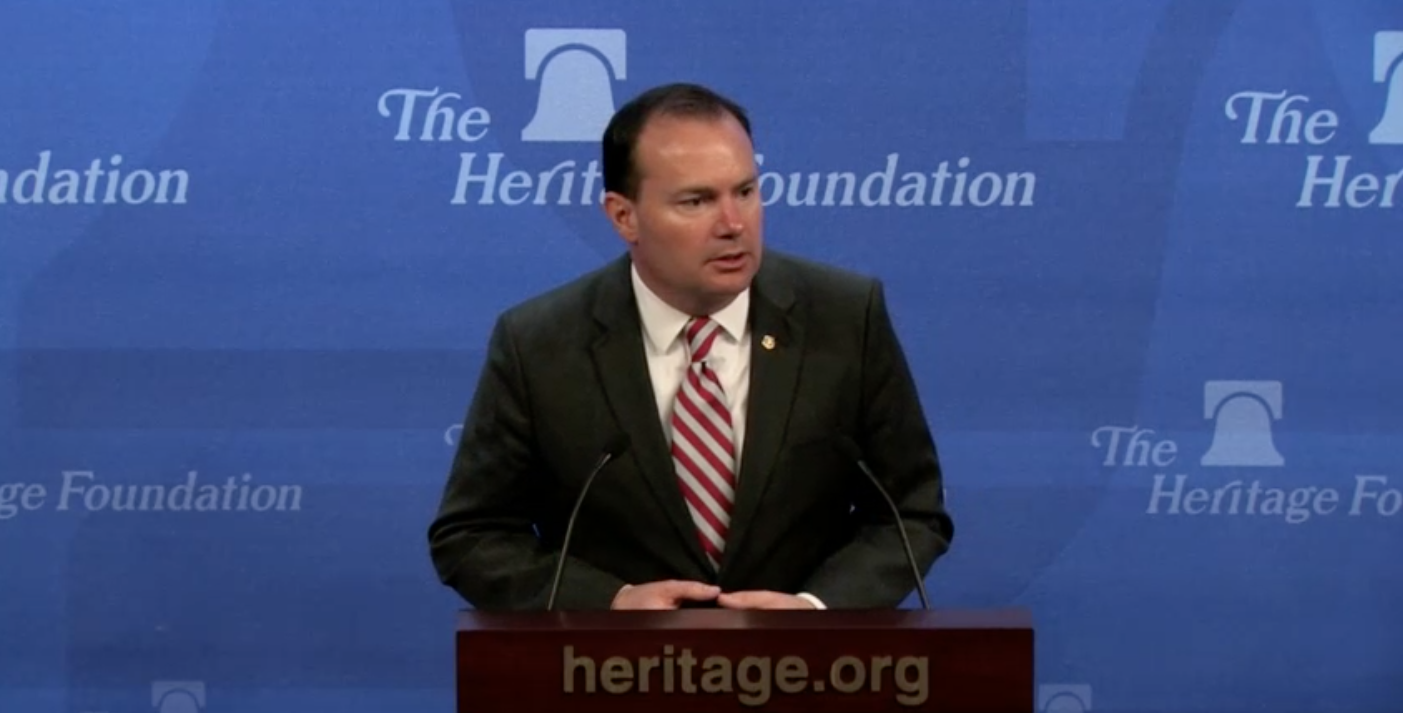America First Diplomacy
Apr 25, 2017

"Like much of the federal government, American diplomacy under the Obama administration took a decidedly leftist turn, often elevating ideological politics above core national interests."
April 18, 2017 – Mobile Office Visit to Duchesne
Apr 18, 2017
Mobile Office Visit to Roosevelt
When: Tuesday 18 April 2017 @ 9:30 AM – 11:00 AM
Where: Roosevelt, Utah @ Roosevelt City Building, 255 S State St, Roosevelt, UT 84066
April 17, 2017 – Mobile Office Visit to Duchesne
Apr 17, 2017
Mobile Office Visit to Duchesne
When: Monday 17 April 2017 @ 9:30 AM – 11:00 AM
Where: Duchesne, Utah @ Duchesne County Offices, 734 N Center St, Duchesne, UT 84021
April 17, 2017 – Mobile Office Visit to Uintah
Apr 17, 2017
Mobile Office Visit to Vernal
When: Monday 17 April 2017 @ 2:00 PM – 4:00 PM
Where: Vernal, Utah @ Vernal City Hall, 374 E Main St, Vernal, UT 84078 (Upstairs Conference Room)
April 14, 2017 - Mobile Office Visit to Beaver
Apr 14, 2017
Mobile Office Visit to Minersville
When: Friday 14 April 2017 @ 12:30 PM – 2:00 PM
Where: Minersville, Utah @ Minersville Town Hall, 60 West Main Street, Minersville UT 84752
April 13, 2017 – Mobile Office Visit to Garfield
Apr 13, 2017
Mobile Office Visit to Panguitch
When: Thursday 13 April 2017 @ 2:00 PM – 3:30 PM
Where: Panguitch, Utah @ Panguitch City Hall, 25 S 200 E, Panguitch UT 84759
April 13, 2017 – Mobile Office Visit to Sevier
Apr 13, 2017
Mobile Office Visit to Monroe
When: Thursday 13 April 2017 @ 10:00 AM – 11:30 PM
Where: Monroe, Utah @ Monroe City Offices, 10 N Main, Monroe UT 84754
Sen. Lee Calls for Vote on Military Humanitarian Operations Act
Apr 11, 2017
SALT LAKE CITY – Sen. Mike Lee (R-UT) released the following statement calling for Congress to take up S. 409, the Military Humanitarian Operations Act which he and Sen. Rand Paul (R-KY) introduced earlier this year:
"Since the U.S. cruise missile strikes against the Shayrat Air Base in Syria last week, President Trump and several senior administration officials have indicated that the United States may be prompted to act again in retaliation to other attacks against civilians or for broader humanitarian purposes.
Chairman's Note: What's Next for Syria
Apr 7, 2017
At 7:36 p.m. ET on Thursday night, the USS Porter and USS Ross naval destroyers launched 59 Tomahawk missiles at the Shayrat Air Base in Syria. Fifty-eight of the missiles reached their intended target, destroying approximately 20 aircraft that United States intelligence sources believe were involved in a Sarin gas attack perpetrated by the government of Syrian President Bashar al-Assad against his own people earlier this week.
The Incredible, Unprofitable Egg Board
Apr 7, 2017
Two years ago, a small California company called Hampton Creek, who had been selling a vegan mayonnaise called “Just Mayo” in stores nationwide, was attacked by a US Department of Agriculture (USDA) program called the “American Egg Board.”
You may be asking why on earth the federal government was involved in a pressure campaign to thwart a startup vegan brand of mayonnaise.
